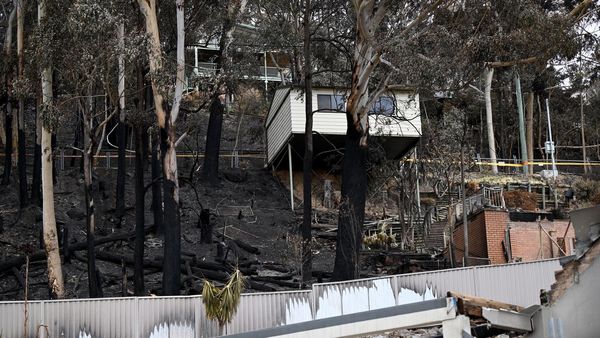Representatives of the world’s governments are gathered in Baku, Azerbaijan, to negotiate international climate policy at the Cop29 summit. Of the more than 30,000 participants, thousands will be representatives of companies or business associations – so-called “corporate lobbyists”.
There’s nothing especially new about this. The business community has sought to influence climate policy since global warming first came onto the political agenda in the 1980s. But there has been a notable increase in the number of corporate lobbyists at climate summits in recent years. The number of fossil fuel lobbyists alone went from an already high 503 at Cop26 in Glasgow to well over 2,000 at Cop28 in Dubai last year. The sheer scale of the lobbying efforts at the most recent summits warrants some attention.
Climate lobbying takes many forms. It often involves" financial contributions to political campaigns and parties, as well as gifts and promises of lucrative future positions. Of course, this is one way that companies seek to influence policy, especially in jurisdictions that allow large contributions.
However, much lobbying revolves around the provision of information rather than direct transfers of money or gifts. When policymakers decide on complex policy solutions, they need input from experts on questions of technical and economic feasibility. Are carbon taxes or emission trading the best way to put a price on carbon emissions, for example? Should we subsidise electric vehicles or bet on hydrogen cars? And so on.
Businesses of course want to exert influence over those inputs, so that when policymakers learn about carbon pricing or electric vehicles, it comes from a source aligned with companies’ interests. Thus, much lobbying takes the form of participation in hearings, the submission of technical comments to policy consultations, participation in expert committees, presentations and research briefs.
Beyond this, companies and their associations often provide so-called legislative subsidies by actually drafting complex legal texts and amendments for sympathetic politicians. For instance, laws drafted by corporate lobbyists aimed at criminalising opposition to oil and gas pipelines have now been passed in 17 US states. In the UK, briefing by a thinktank linked to fossil fuel money helped the government draft recent anti-protest laws aimed at climate activists.
Lobbying can also be aimed at the public, as when interest groups conduct public campaigns on the merits or dangers of a policy. Most notoriously, coalitions of polluting industries, such as the Global Climate Coalition in the US, sowed doubt on the soundness of climate science even while internal research by companies in those same industries confirmed the link between fossil fuels and climate change.
Public campaigns by business groups have also targeted specific climate policies, such as the Kyoto protocol and carbon taxes.
Sponsors, participants, official delegates
The yearly UN climate summits are an important forum for lobbying. Business associations that represent companies can register as non-government organisations with observer status, which gives them access to meetings, workshops and official draft documents. It also gives them the right to distribute documents to country delegations and host side events or exhibits.
More recently, individual companies have been invited to sponsor the events in exchange for privileged access to negotiators. Countries also sometimes include company representatives in their official country delegations, which allows them to provide direct input on draft resolutions. Shell, for example, has been a member of the Brazilian and Nigerian delegations at previous Cops.
Not all climate lobbying is aimed at obstruction. Indeed, in the run up to the Paris summit in 2015, some business leaders supported an “ambitious” climate deal. This is often credited as one reason for the successful negotiation of the Paris agreement that year. Similarly, the We Mean Business Coalition organised a letter that called for the phaseout of fossil fuels ahead of last year’s summit in Dubai.
Nonetheless, the most intense lobbying, both at the Cops and nationally, is often conducted by polluting industries. While 200 businesses signed the letter ahead of Dubai, more than 2,400 delegates at that same conference were associated with the fossil fuel industry. Fossil fuel companies and other polluting industries have blocked binding international climate targets and promoted policy approaches that are less costly to business and less effective, such as the allocation of free emission permits to industrial polluters in the EU.
Difficult to trace
If many companies lobby against effective climate policy, how do they get away with it? My research shows that lobbying that clearly obstructs climate action can harm a company’s reputation. Yet, these companies are sophisticated actors that employ several strategies to limit reputational damage from climate obstruction.
For one, lobbying against climate policy is often strategically conducted in a way that is more difficult to trace and attribute to individual firms. Companies can fund campaigns through untraceable “dark money”, they can lobby behind closed doors, or join Cops through unexpected delegations that make it harder for activists to map their participation. For example, employees of the French oil and gas giant TotalEnergies attended Cop27 through an obscure German organisation that did not disclose who its delegates worked for.
Companies tend to rely heavily on their associations to conduct the most obstructive lobbying. This distributes the blame for lobbying among all competitors, so no company can easily be singled out.
Some companies invest a lot of money in advertising campaigns that portray them in a greener light and highlight their more climate-friendly projects. This is despite the fact that neither their policy advocacy nor their core business decisions are climate-friendly. It is important that civil society actors and academic researchers call them out on such strategies.

Don’t have time to read about climate change as much as you’d like?
Get a weekly roundup in your inbox instead. Every Wednesday, The Conversation’s environment editor writes Imagine, a short email that goes a little deeper into just one climate issue. Join the 40,000+ readers who’ve subscribed so far.
Christina Toenshoff has received external funding for her research from the Climate Social Sciences Network. She is affiliated with the NGO "The Good Lobby" as an expert advisor on a project related to business associations.
This article was originally published on The Conversation. Read the original article.







